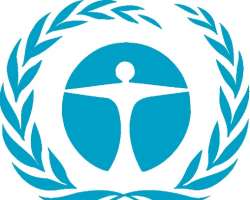Football Star Yaya Toure Flies the Flag for the Survival of African Elephants At World Cup Qualifier Match in Cote d'Ivoire

ABIDJAN, Côte d'Ivoire, September 6, 2013/African Press Organization (APO)/ -- Cote d'Ivoire national football team star and captain of Manchester City FC, Yaya Toure and footballers at a World Cup qualifier match between Cote d'Ivoire and Morocco will make a strong statement against the illegal killings of elephants in Africa on Saturday - in support of global efforts to stop the illegal trade in wildlife, championed by the United Nations and partners.
The sold-out game, which will be viewed by over 25 million people around the world, will feature the players carrying slogans to raise awareness against the killings of elephants and other wildlife.
Increased poaching and loss of habitats are threatening the survival of African elephant populations - especially in Central African countries - according to a report entitled "Elephants in the Dust - The African Elephant Crisis", released in Bangkok in March at the meeting of the Convention on International Trade in Endangered Species (CITES).
The UN estimates that over 17,000 elephants were illegally killed in monitored sites in 2011 alone. Overall figures may be much higher
In Cote d' Ivoire, the number of elephants has fallen to 800 individuals, according to recent reports.
Last year, in Bouba N'Djida National Park, northern Cameroon, up to 450 elephants were killed by rebel groups from Chad and Sudan.
The extent of the killings now far exceeds the natural population growth rates, putting elephants at risk of extinction, especially in Central and Western Africa.
But even previously secure populations, like in East Africa, are now under threat.
Achim Steiner, UN Under Secretary General and UN Environment Programme (UNEP) Executive Director said: "The illegal wildlife trade is threatening not only the survival of species such as elephants and rhinos but also the livelihoods and often the very lives of people across Africa and the developing world".
"We thank Yaya Toure and the 'elephants' of the Cote D'Ivoire football team who are are today making a stand--together with the UN, customs and police forces, wildlife groups and the catalytic power of sports men and women everywhere; let's stop the criminals and score some big wins for elephants, rhinos and threatened species everywhere," he said.
The report - produced by the UN Environment Programme (UNEP), the Convention on International Trade in Endangered Species (CITES), the International Union for Conservation of Nature (IUCN), and the Wildlife Trade Monitoring Network (TRAFFIC) - says that systematic monitoring of large-scale seizures of ivory destined for Asia is indicative of the involvement of criminal networks, which are increasingly active and entrenched in the trafficking of ivory between Africa and Asia.
Yaya Toure, said, “Time is running out for African Elephants. The surge in the killing of elephants in Africa and the illegal trafficking in other threatened species will not only threaten the animals, but will affect the livelihoods of millions who depend on tourism for a living.”
“Wildlife crime is a serious threat to the security, political stability, economy, natural resources and cultural heritage of many countries. We need to come together to take action against the illegal trade in wildlife across Africa and across the world,” he added.
Globally, the illegal ivory trade tripled since 1998.
Criminal networks are responsible for the illegal trafficking of ivory between Africa and Asia. Large-scale seizures of ivory destined for Asia have more than doubled since 2009 and reached an all-time high in 2011.
A single shipment can comprise hundreds of tusks, which proves that highly organized criminal networks in Africa continue to be active with almost no evidence of successful arrests, prosecutions or convictions.
These threats compound the most important long-term threat to the species' survival – the increased loss of habitat as a result of rapid human population growth and large-scale land conversion for agriculture.
Elephants have already lost around 29 per cent of their habitat range. Some models suggest this figure may increase to 63 per cent by 2050.
The international community is looking at effective measures to address the crisis, including collaborative action to combat the illegal trade in wildlife and timber, which would include:
• Improved law-enforcement across the entire illegal ivory supply chain;
• Strengthened national legislative frameworks;
• Training of enforcement officers in the use of tracking, intelligence networks and innovative techniques, such as forensic analysis;
• Better international collaboration across range states, transit countries and consumer markets - through UNEP, the UN Office for Drugs and Crime, CITES, INTERPOL, the World Customs Organization, the World Bank and other international actors is needed in order to enhance law enforcement - from the field to the judiciary - to deter criminal activities and combat illegal trade.
• Action to fight collusive corruption, identifying syndicates and reducing demand.
